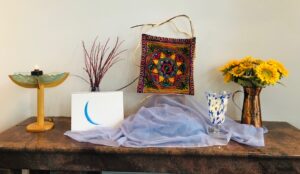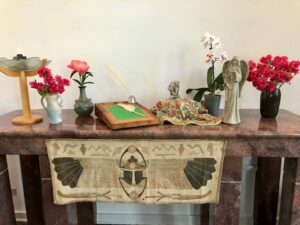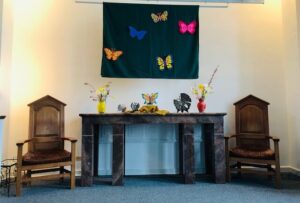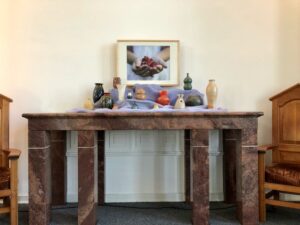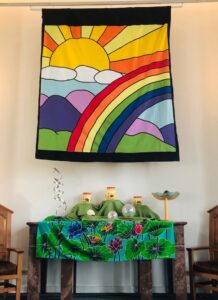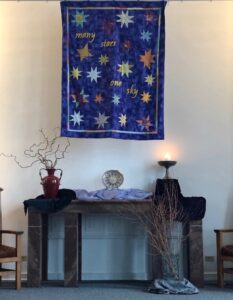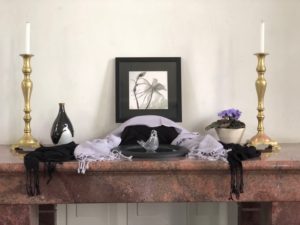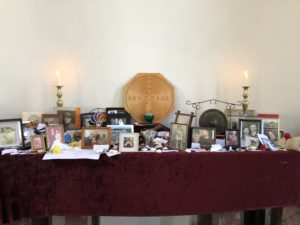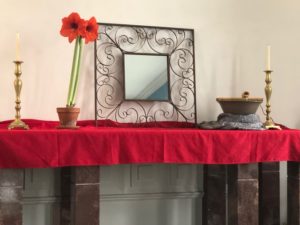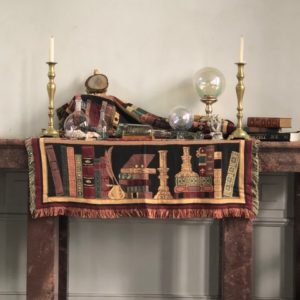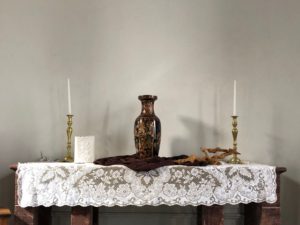Sermon for TJMC UU Mothers Day 2017
By Rev. Alex McGee
Note to reader: This text was a general template for my comments, and some may have been changed or improvised on the spot.
Today is Mothers Day.
Mothers Day can be looked at from different angles and experienced in different ways.
Each of us here this morning has a unique experience of being mothered, and a unique experience of offering loving care to the next generation.
The first mothers day is credited to Julia Ward Howe who is a UU . It was an anti-war protest.
Mothers Day can also be looked at from a seasonal perspective.
Perhaps we can guess that Mother’s Day belongs in spring.
Indeed, Creation is rebirthing itself. Mother Earth and the seeds have sat pregnant all winter and are giving way to new life.
And, so we have this day to celebrate the mothers in our lives. To celebrate the mothering role of protect, nurture, and make ready for adulthood.
And that is what I want to focus on today.
The desire to protect.
Here are some examples.
In the movie Finding Nemo, the father, named Marlin, promises his son “I’ll never let anything happen to you.” I believe many parents can relate to that.
The word Mother Bear is a image of someone fiercly protecting offspring. It can be an expression meaning not to get between someone and what they intend to protect.
In a novel I read, one character was a woman who was pregnant and felt as if she did not want to deliver her child because she would no longer be able to protect it.
Indeed, the desire to protect is inside the fibers of one’s body.
Consider the feelings of a mother the first time she leaves her baby to be cared for by somone else — wondering whether that person will know just the right tenor in the child’s cry as to whether it needs food, or changing a diaper, or to be held.
Consider the feeling of a parent putting a child on the bus for the first time— knowing that the child will have to find their own way off the bus, and navigate the friendships or bullying on the bus.
Consider the feeling of letting your child be in the hands of the doctor or dentist, and how often the child is afraid or cries, because of the unfamiliarity and discomfort.
Yes, it is true, in this world, we can not always protect someone.
Mothering is a constant process of letting go of protecting one’s child.
And, in this is an ache.
Naming this ache of motherhood is perhaps one gift that you can give to mothers on this mother’s day. Because so often, this ache remains invisible or unacknowledged. And we give a mother the gift of being seen for her whole self when we acknowledge all the parts of her journey of motherhood.
This ache happens in more and more complex ways when the complexities of this world touch the child: a parent deployed overseas, a parent spending time in prison, a parent who harms their own child.
The ache of a mother runs deep when she sees her child bullied, when she sees her child victimized by police, and when a child suffers from mental illness.
And, the ache of a mother can be an quiet companion for years if an adult child chooses not to be in contact.
Yes, here in this sanctuary on the Sunday of Mother’s Day, I invite all of us, to name what is true about the full range of experience of mothering—the joy and the sorrow. Later in the service, you will have a chance to come forward and light a candle or write in the sands to wipe them clean to represent these aspects of motherhood that have no quick fix.
As I said earlier, Motherhood is part of the web of sacred creation.
So, just as the pregnant waiting is a stage of life and a stage of motherhood, all of us humans, mothers or not, can relate to waiting for a brith in our lives.
And just as the joy of newness is a universal truth as well as a joy for new mothers, all of us humans, mothers or not, can relate to welcoming joy.
And just as the ache of not being able to protect something is a universal experience, all of us can relate.
Many parents can attest to the practicalities of prioritizing the many needs of your child. First, you want to get them clothed and fed. On some days, that may be the best you do. Also, you want to give them tenderness. And some days that may be the best you do. Also, parents want to give their children ease and opportunities out in this world.
But not all parents have enough resources to meet all these needs. A mother who is fleeing a home or a country may have trouble getting food for her child. A mother of children of color may have trouble ensuring their safety. A mother working three jobs may not have the time to hug her kids the way she wants.
In situations like this, when a mother can’t get the physical resources she needs for her child, she experiences a heartache that may be blended with anger at injustice, or guilt, even though she has done nothing wrong. I lift this up to name the complexities of the many pulses running through a mother’s heart.
As ancient as creation is this dilemma and also as ancient as creation is the wisdom that mother’s learn to deal with this.
I would like to share one mother’s wisdom, learned through ache and struggle. This example comes from a woman named Valerie Kaur, and I heard her story while watching a video of a conference about Revolutionary Love. In our staff meeting recently, we used our time for continuing educaiton together by watching a talks from this confernce. She tells about the day her son was born and the pain of delivery and the comfort her mother gave her, and the new understanding she had of love when she held her son. Its been a few years since her son was born and he is a young boy now. Valerie Kaur’s faith is the Sikh tradition — Sikh S I K H. In that tradition, people grow their hair long. And some people bind up their hair in a cloth wrapped around the head. She recnelty learned of an incident in which two men with such head coverings were beaten. And she spoke at this confernce in eloquent language: “as their collar bones were broken, so my heart was broken” knowing that she cannot protect her own son from such hatred and violence. She said this has been a journey for her to understand. For the last two years she has collaborated with other faith leaders to remind all of us that there is a way greater than this pain. They have a three pronged approach. Love of the Divine, Love of our fellow human, and Love of Self. She says that Love of Self is a recent addition in the non-violent social change movement, as women have come into leadership. They insist that we cannot work for good without making sure that we ourselves are healthy. We cannot inflict harm on ourselves in the name of protecting Creation since we ourselves are part of Creation.
My friends, I believe that even with all this heartache, we can go forth with hope. I hope hope that we can leave with a message of hope. Because even when heartache is present, even when we can do nothing, that does not mean that all is lost.
There is a wholeness that we often do not unederstand.
On the cover of your order of service is a sun and moon that are together. That image is a circular inter-curling that reminds me of the symbol of yin and yang, the black and white curling together, with a dot of each in the center of the other.
Indeed, life is made of light and dark, day and night.
Just because we cannot see where wholeness is does not mean that is does not exist. That is why I believe we can have hope.
In the ancient Psalms, the writer laments, “God, where are you? How long will you hide your face from me?” I once heard an elderly minister say that he had observed this same dynamic when playing hide and seek with his grandson. The boy would start the game, and then would call, Where are you Grandpa? I can’t see you!
The minister observed that he knew that he was present, but the boy couldn’t see that. In the same way, this elderly man remains assured that there is a Divine Protective Presence, even though he can not see it.
We all come into this life, we all die
We all have a chance ot be part of generativity
May we engage fully inlife, even when our hearts ache
And may we name the heartache when it happens, so that no one has to suffer alone.
AMEN

